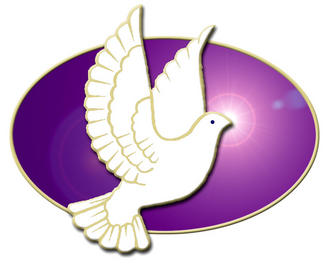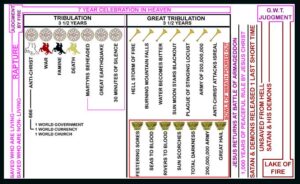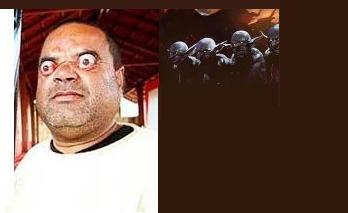Introduction
The key to healthy life, growth and success in any organization is an effective and efficient leadership
program that can recognize and develop the potential of others and so promote leadership. Effectiveness is
indispensable for leaders to continue at present and advance to the future. Effectiveness requires that
leaders make men and women responsible by giving tasks and providing motivation to achieve the goal.
Generally speaking, leaders are successful when they motivate their followers to achieve their objectives.
When a company makes more profit and expand its business horizon, definitely its executives are efficient
and effective. But there should be a constant reevaluation of the whole system of their approach so that
any thing that they do may result in long lasting effectiveness. Leaders must constantly keep in mind the
basic task of effective leadership, that is, developing relationships with people in such a way that they are
enabled to formulate and achieve goals for groups and individuals that meet real needs. John C. Maxwell
in his excellent book, Leadership 101 What Every Leaders Needs to Know, says, “Effectiveness is the
foundation for success.” In an effort to delineate leadership effectiveness in today’s business and religious
world, the following criteria are suggested. Other things certainly could be added to the list, but the
following seven decisive factors are central to leadership effectiveness.
1. Flexible and Open to Change
A leadership that is flexible and open to change is the need of the hour. Effective leaders with vision will
want to make changes. We live in a changing world and every thing in today’s world experience new and
different phase. An effective leader must be able to know the need for change, the factors resisting
change, the time of change and the different approaches to change.
It is important to consider both long-term and short-term results in an organization or business
enterprise. Flexibility and openness are absolutely necessary, that is, the ability to make changes when
they are needed in the future. Right changes must be introduced at the right time. Change will be resisted
if it is made at the wrong time. Therefore leaders need to keep re-examining the program that is, “Is
there anything that should be eliminated or accepted? Are we working on tasks of yesterday when we
should be bending ourselves to the opportunities of tomorrow? If a task is inherited and not bringing
results, it should be dropped and forgotten. Every program in an organization or church should be
conceived as temporary, expendable, or ready for expiration after a few years. When we do a new activity
or implement a change, keep asking the question: Is this worth doing?
2. Shared Leadership
Effective leadership must be a shared leadership. This simply means that leadership must be carried out as
a team. Any thing that is worked out under a plurality of leadership will be more result oriented. One of
the skills needed in leadership is the ability to build and maintain a strong team. Only by mutual sharing,
counseling and supporting leaders can be effective. Stardom and individual heroism are the obvious
aspects of our competitive society. We see here the dominant image of the self-made man or women who
can do it all alone. It is true that individuals can do a lot, but one can accomplish more by the help of
someone who encourages and gives opportunities.
Today we need a team approach in leadership. An effective leadership develops a strong team. In a team
none falls behind, none gets ahead, but everyone wins together. Failure of one in the team will not affect
the institution since there are others to carry on the task. Two people will have the potential to accomplish
more than twice as much as one working alone. Results are better when work is done as a team. Team
members are quick to help each other in difficult situations. They can delegate their responsibility to
others in the team which will create an effective and vital leadership. Team leadership will help avoid the
temptation of absolute power, accumulation of illegal possessions, and manipulation of accounts. One of
the greatest problem today’s leaders face is loneliness. In a team one can share with others, get counsel
from others and support each other. An effective leader is the one who works with others as a team.
How to work together in a team? Stephen R. Covey in his brilliant book, The Seven Habits of Highly
Effective People, says that valuing the differences is the essence of synergy – the mental, the emotional,
and the psychological differences between people. The key to valuing those differences is to realize that all
people see the world, not as it is, but as they are. We can value the differences in other people. When
someone disagrees with us, we can say, “Good! You see it differently.” We don’t have to agree with them;
we can simply affirm them and we can seek to understand.
3. Vision, Mission, and Goal Oriented Leadership
Effective leaders are proactive and future-oriented. Leadership begins with a vision. A vision is a clear
picture of what the leader sees his or her group being or doing. Effective leaders are wholeheartedly
committed to their vision, which involves beneficial change for the group. They must be aware of the
importance of their vision and make it the driving force behind their leadership. Leaders must seek to
effectively communicate their vision, mission and goal to their followers. Having a vision is not enough.
There must be a commitment to act on the vision. That is called a mission. There must also be a set of
specific, measurable steps designed to achieve the mission. Those steps are called goals. Goals design the
program for achieving the mission and thus fulfilling the vision. With all these, keeping the focus on
important things is the nature of effective leadership today.
4. Competent Leadership
Leaders face everywhere the problem of incompetence. Incompetence has become a virus to the present
leadership. Laurence J Peter and Raymond Hull in their hilarious and stimulating book, The Peter
Principle, talk about the universality of incompetence. According to Peter, in a hierarchy, every employee
tends to rise to his or her level of incompetence. He affirms that those employees who have not yet
reached their level of incompetence accomplish work. John C. Maxwell in Leadership 101 stated, “20
percent of the people will make 80 percent of the decisions.” He further said, “20 percent of the people in
an organization will be responsible for 80 percent of the company’s success.” This is because 80 percent
are incompetent in their job.
We need competent leaders to accomplish the task. How do we know weather a leader is competent or
not? According to Peter and Hull, the competency of an employee is determined not by outsiders but by his
superior in the hierarchy. If the superior is still at a level of competence, he may evaluate his
subordinates in terms of the performance of useful work. If a teacher is effective, our task is to make
him or her better teacher and not the principal of the school. If a company executive is effective and
efficient, our task is to make him or her better executive and not the chairman of the company. To be
effective, our task is to make a teacher a better teacher; a sales person a better sales person; an
accountant a better accountant; an executive better executive and so on, if they are still competent in their
present capacity. It is because one may be competent as a teacher, but incompetent as the principal, he or
she may be effective as an executive, but incompetent as a chairman. Future needs competent leaders!
5. Self-Disciplined Leadership
Effective and spiritual leadership for this century must be a self-disciplined leadership. How can a leader
discipline his institution or followers unless he himself is disciplined? Maxwell in his book, Leadership 101,
states, “No matter how gifted a leader is, his gifts will never reach their maximum potential without the
application of self-discipline.” We cannot serve people effectively as leaders unless we have first mastered
our own life. There needs discipline in the area of emotions, relationship, freedom, material possessions,
accomplishments, experiences, ideas, etc. Unless we can lead ourselves through these essential disciplines,
we will have difficulty leading others. Effective leaders need discipline of the body and mind.
It is important because effective leadership starts with character. A leader is not defined by performance
or by the results, but by the character. Leadership is influencing people and not winning popularity.
Influence gains respect, but popularity gains power and in the end we w’;[‘’ill lose it. If we are concerned
with image, power or prestige, we have taken the first tep toward becoming a dictator. An effective leader
must the possessor of a disciplined life. Such leaders will be able to influence others through the strength
of their character.
6. Steward-Leadership
An effective leader is a steward of those whom he or she leads. Steward-leaders use their gifts and the
talents to bring out the best in the people they lead, in order to accomplish their vision. Good steward-
leader focuses on people, realizing it is they who must accomplish tasks. Such leaders must be ready to
serve people. The essence of leadership is service. As stewards, leaders must be loyal to their institutions
and accountable to those they lead. The whole matter of accountability is important here. This will help
them overcome the temptation of manipulation of wealth, possessions, properties and accounts. A strong
concept of accountability is the characteristic of effective leaders so that they can effectively lead.
7. Reproducing Leadership
An effective and vital leadership at present must be a reproducing leadership. Effective leaders produce
effective leaders. This is a paramount responsibility of leaders. Effective leadership is an effectively
trained leadership. John C. Maxwell in his exciting book, Developing the Leaders around you, states, “If
you really want to be a leader, you must develop other leaders around you.” Effective leaders facilitate the
growth and accomplishment of their employees. He further says, “Leaders create and inspire new leaders
by instilling faith in their leadership ability and helping them develop and hone leadership skills they don’t
know they possess.” A leader is effective if he or she is able to produce a few who will carry out his or her
vision. Effective leaders will not come automatically, they must be raised, cultivated and trained by
business firms and voluntary organizations, such as churches and other charitable religious and secular
institutions. Such effectively trained leaders will be faithful and more obliged to their particular
organizations.
Summary
Effective leaders are aware of the nature of their leadership. A leadership that is flexible and open to
change will focus on the future and make necessary changes at the right time, considering both long-range
and short-range results in an organization. A leadership that is shared will build a strong team, which
accomplishes its tasks more effectively. A vision, mission, and goal oriented leadership will have a clear
picture of what they see, what they do and their programs. Such a leadership keeps focus on important
things. A leadership that is characterized in its competence can accomplish the work successfully. A self-
disciplined leadership can bring about discipline in their whole organization. Steward-leadership uses its
gifts and skills to draw out the best in the people who are under the leadership. A reproducing leadership
stimulates people and makes effective leaders. Effective leaders make a big difference. If you are with the
above distinctiveness in your leadership, you will make that difference!




















